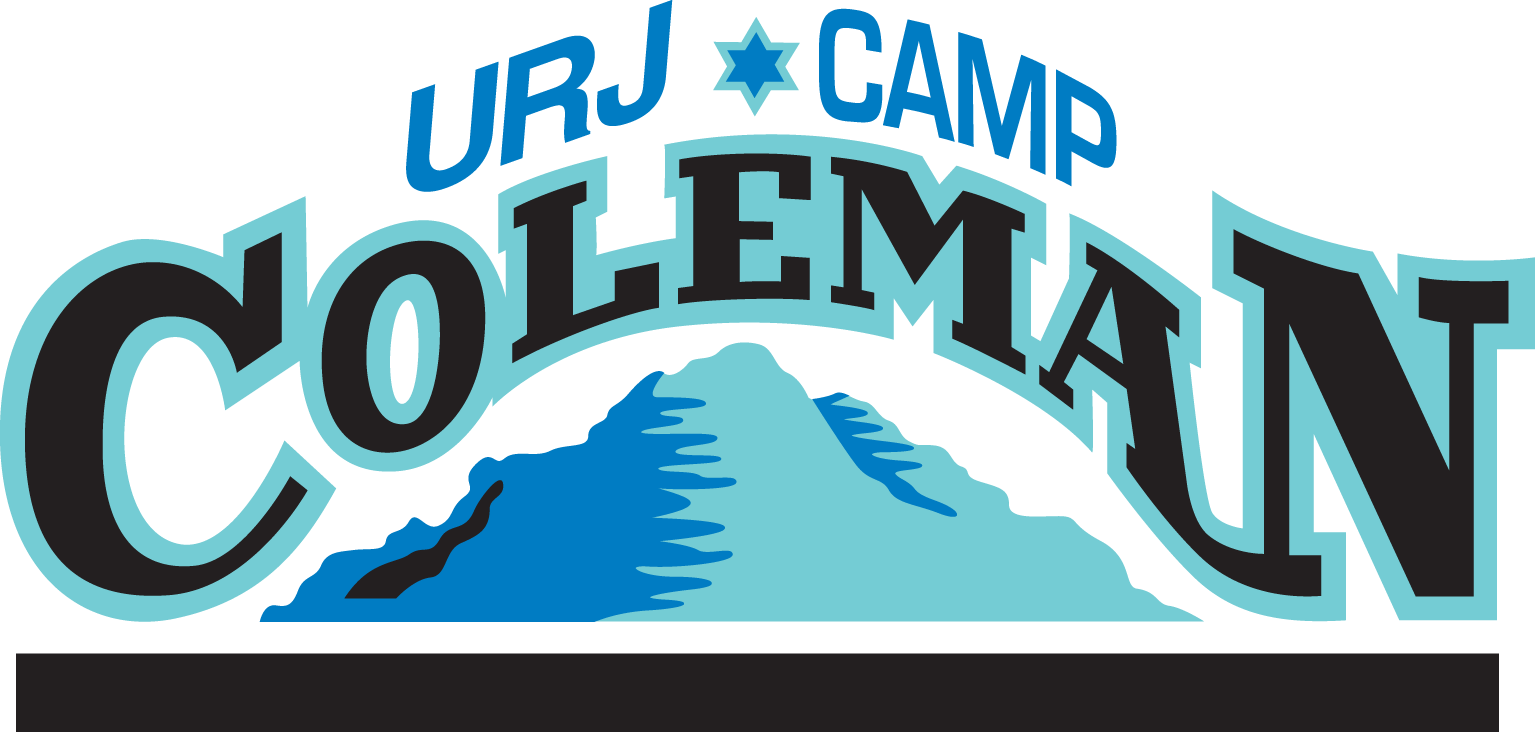Philip N. Coleman
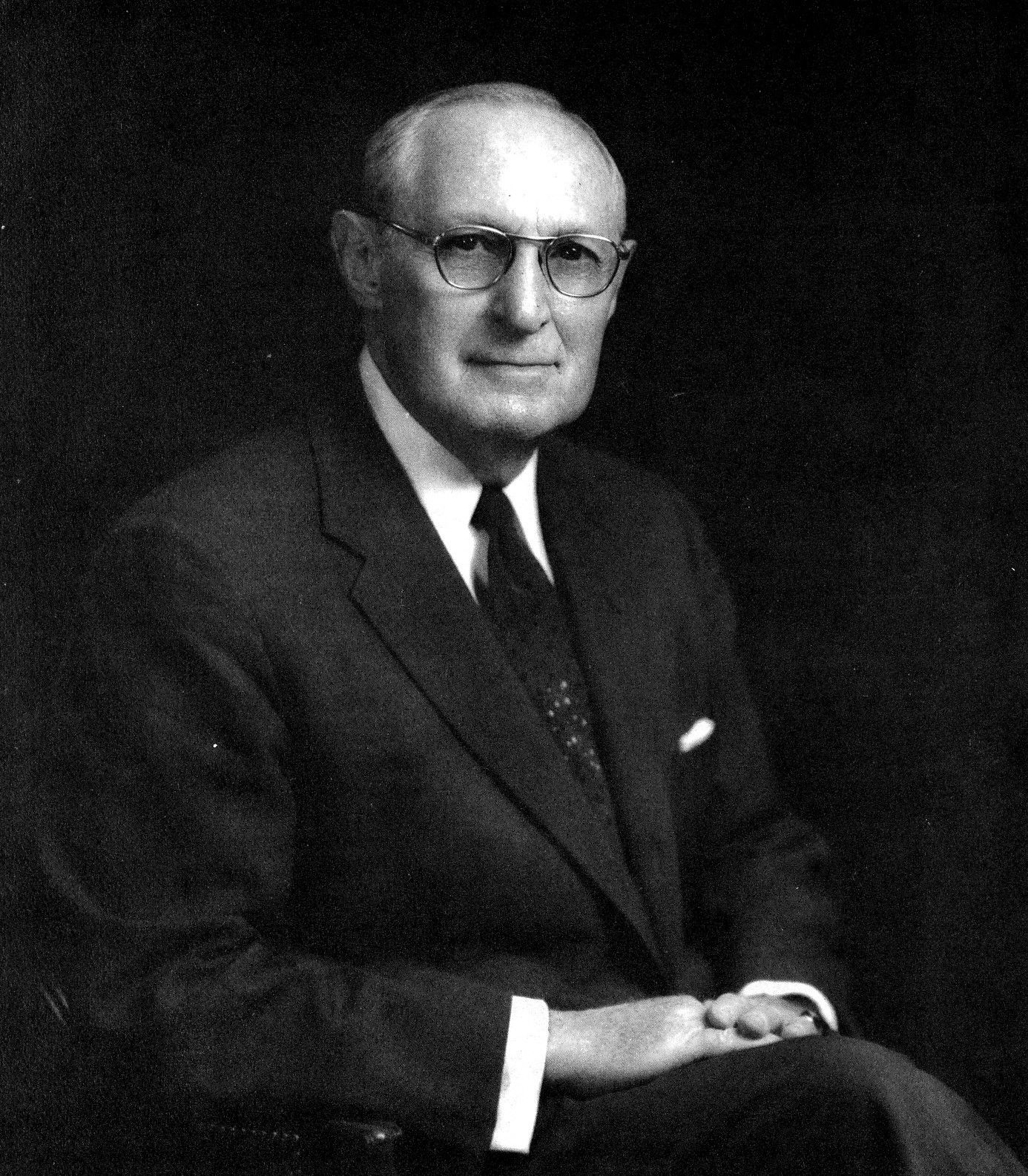
Born in Savannah, Georgia, Philip N. Coleman built a life marked by hard work, entrepreneurship, and a deep commitment to community. He began his career in the lumber industry, eventually founding the American Cross-Arm Company, which grew to supply utility poles and wood products nationwide. His business success gave him the means to pursue what mattered most to him: philanthropy.
Throughout his life in Jacksonville, Florida, Coleman gave generously to causes close to his heart. He supported education through the Dollars for Scholars program, endowed a home for the elderly at River Garden Hebrew Home, and together with his wife Ray, established the Ray and P. N. Coleman Foundation to continue their charitable work. His leadership roles included serving as a trustee for Jewish organizations, the YMCA, the Boys Club, and Jacksonville University, among many others.
When the dream of creating a Reform Jewish summer camp in the South became possible in the early 1960s, Philip and Ray Coleman stepped forward with a transformative gift. In recognition of their generosity and commitment, the camp was named UAHC Camp Coleman in their honor.
What makes this gift even more extraordinary is that Philip and Ray did not have children of their own. They did not build this camp for themselves, but with an eye toward future generations of Jewish children who would have the opportunity to enjoy it.
As we honor Philip and Ray Coleman this Founders’ Day, we remember that their vision was never about themselves — it was always about the children who would come after them. We are those children — the campers, staff, alumni, and families of Camp Coleman — and we are Philip and Ray’s living legacy. Their dream is now in our hands.
Isidore Denemark

We highlight Isidore Denemark of Sumter, South Carolina — a man whose journey from the son of immigrants in a small Southern town to a leader of Jewish life in the South embodies the vision and determination of Coleman’s founders.
Born in 1910 in Mayesville, South Carolina, Isidore was the son of Eastern European immigrants Sara Lee “Lizzie” Siegel and Jacob Denemark. Raised in an Orthodox Jewish household, Isidore remained deeply connected to his faith and community, even as he later practiced Reform Judaism at Temple Sinai in Sumter. He often expressed both pride in the contributions of Sumter’s Jewish residents to civic life.
One of Isidore’s proudest legacies came in the early 1960s, when he became one of just a handful of people willing to put up the initial funds to create a new summer camp for Jewish children. He helped purchase more than 200 acres in Cleveland, Georgia, and worked alongside the other founders to bring the vision to life. He was instrumental in recruiting additional donors, including the Brody family, and the Coleman’s themselves.
Isidore’s love for Coleman didn’t stop at its founding. After Rabbi Gerber stepped away from directing camp, Isidore himself stepped in to run Coleman for a few summers, ensuring that camp traditions and values remained strong in its early years. His leadership left such an impression that even decades later, well into the 1990s, people in Sumter who had once been his campers still greeted him affectionately as “Uncle Izzy.”
For Isidore, the founding of Camp Coleman was about more than land and buildings. It was about ensuring that Jewish children in small towns like Sumter — children who might not otherwise feel part of a vibrant Jewish community — could come together each summer, grow in their Jewish identity, and form friendships that would last a lifetime. Use this link to hear Isidore‘s oral Jewish history in his own words.
Today, every camper who splashes in the lake, every counselor who leads a bunk, and every alum who treasures their summers at Coleman is part of Isidore Denemark’s living legacy. He and his fellow founders built Coleman not for themselves, but for us — and it is now our responsibility to build on their vision, keeping camp strong and vibrant for the generations yet to come.
On this Founders’ Day, as we Celebrate the Lake, we also celebrate the life, leadership, and enduring impact of Isidore Denemark — “Uncle Izzy” — who gave us the place we all call home.
Melvin T. Goldberger
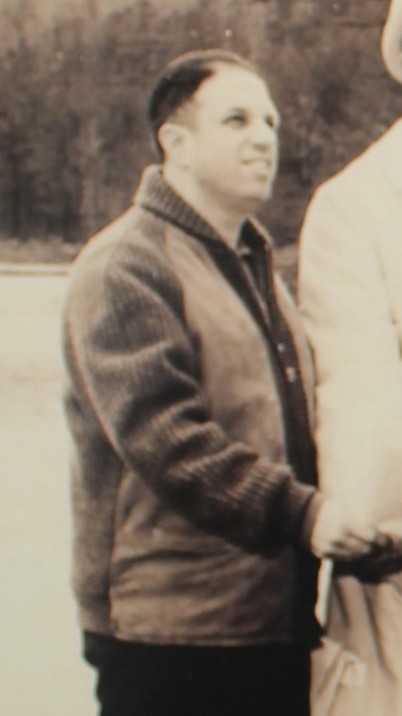
In this Founder Spotlight we honor Melvin T. Goldberger of Knoxville, Tennessee — a businessman, philanthropist, community builder, and family man whose leadership helped shape Camp Coleman into the beloved place we know today.
Born on June 6, 1919, to Harry and Grace Reich Goldberger, Melvin grew up in Knoxville. Exceptionally bright, he entered The Ohio State University at just sixteen years old. After graduation, he served as a Lieutenant in the U.S. Army during World War II, where he met the love of his life, Betty K. Goldberger, in Asheville, North Carolina. Together, they built a family that became Melvin’s greatest joy and proudest legacy.
After the war, Melvin returned to Knoxville and built a successful plumbing and electrical supply company, later expanding into real estate development. Beyond business, he gave generously of his time and expertise, supervising the construction of Reform synagogues in Knoxville, TN, and Temple Beth El in Boca Raton, FL. He also lent his leadership to numerous boards and charitable causes, including the Union of American Hebrew Congregations.
Melvin’s impact on Camp Coleman was equally profound. When Meyer N. Kronenberg had to step back from chairing the camp project for the UAHC, due to ill health, it was Melvin Goldberger who stepped forward to lead. At the groundbreaking in January 1962, standing by the newly formed lake, Melvin read a prayer that expressed the founders’ collective dream: that this camp would be a sacred space where Jewish children could learn, play, and grow in their identity. Under his leadership, the first cabins, dining hall, recreation center, outdoor chapel, and beloved lakefront all began to take shape. Use this link to read the January 12, 1962, Southern Israelite article written about the groundbreaking.
Melvin lived a life filled with joy, generosity, and devotion — to his community, to the Jewish future, and above all, to his family. He and Betty raised three daughters, Diane, Susan, and Margy, and delighted in their grandchildren and great-grandchildren. To them, he passed on the true meaning of love, family, and service.
Today, nearly 65 years later, every camper who sings by the lake, every counselor who leads a cabin, and every alum who treasures their summers is part of Melvin T. Goldberger’s living legacy. He and his fellow founders built Camp Coleman not for themselves, but for us — and it is now our responsibility to build upon their vision, keeping camp strong and vibrant for generations yet to come.
On this Founders’ Day — Celebrate the Lake, we remember the leadership, generosity, and spirit of Melvin T. Goldberger, whose vision continues to ripple through every Coleman summer.
Marvin Engle
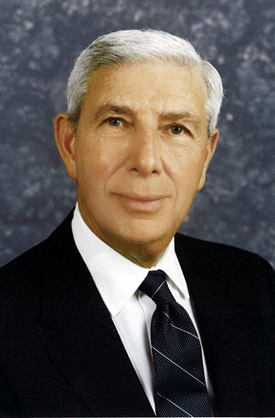
In this Founders’ Spotlight we honor Marvin R. Engel of Birmingham, Alabama — a man remembered as both a savvy businessman and one of the city’s most generous philanthropists.
Born on January 27, 1921, Marvin grew up in Birmingham, Alabama before heading north to study at the Wharton School at the University of Pennsylvania. He graduated in 1942 and served in the U.S. Army Signal Corps during World War II, achieving the rank of First Sergeant before his honorable discharge in 1945. After returning home, Marvin joined the family business, Engel Insurance Co., and had great financial success.
But Marvin is remembered most for his philanthropy and civic involvement. As president of the Southeast Council of the UAHC from 1958-1959 he became a member of our Founders’ Committee. He was instrumental in garnering support for Camp Coleman among the members of the UAHC. Marvin was also present on January 6, 1962, for the Shabbat service that marked the groundbreaking of what was then SEFTY Camp and would eventually become UAHC Camp Coleman. In the late 1980s, Marvin became one of Birmingham’s most active and respected community benefactors. He and his wife, Ruth, gave millions through the Community Foundation of Greater Birmingham.
Marvin also gave his time and leadership. He served on boards of institutions that enriched civic and cultural life, including the Alabama Symphonic Association, Birmingham Museum of Art, The EyeSight Foundation of Alabama, and Leadership Birmingham. One of the lasting tributes to Marvin Engel’s generosity in Birmingham is the Ruth & Marvin Engel Cantorial Chair & Choir Fund at Temple Emanu-El, among other charitable funds that help youth attend Jewish camps, support worship and ritual, and enrich spiritual and cultural life.
His philosophy was simple yet profound: “You have to pay your civic rent.” It was a lesson he attributed to his father and one that guided every gift he made.
Marvin Engel’s legacy reminds us of the values that built Camp Coleman: vision, generosity, and responsibility to the generations that follow. Just as he invested in the future of his hometown, he also helped invest in the dream of a Jewish camp in the South — a dream that became Camp Coleman. It is now our incumbent upon us, as his legacy, to continue that investment.
C. Davis Turner

A Visionary Leader Who Built Community and Jewish Life in the South
C. Davis Turner was one of the Southeast’s most inspiring Jewish and civic leaders. Turner’s life was defined by faith, enterprise, and service — and his impact continues to echo across generations through the camp he helped bring to life.
A resident of Marianna, Florida, since 1921, Turner was a respected businessman and a pillar of his community. Along with his brothers, Harris and Louis, he owned and operated Turner’s Your Store, a small but beloved chain of clothing shops serving towns across North Florida. Known for friendly service and community care, Turner’s stores became trusted gathering places in every town they served, reflecting the brothers’ values of integrity, hard work, and kindness.
Turner’s entrepreneurial reach went far beyond retail. He served as President of Chipola Corporation, which owned Radio Station WTOT, connecting North Florida listeners to news, music, and community life. He was also Secretary of Turner Investment, Inc., Vice President of the Marianna Savings and Loan Association, and President of Blue Springs Lake, Inc. His professional endeavors — spanning business, media, finance, and development — reflected his vision for strengthening the civic and economic life of his community.
Turner’s leadership extended deeply into Jewish communal life. He was a founder and the first president of the Southeast Council of the Union of American Hebrew Congregations (UAHC), helping unite Reform congregations across the South at a time when Jewish communities were small, scattered, and often faced exclusion or prejudice.
As chairman of the Council’s camping committee, Turner became the driving force behind the creation of a permanent Jewish summer camp in the Southeast — the camp we now know as URJ Camp Coleman.
In June 1959, Turner led a team of leaders to North Georgia to inspect a 200-acre site nestled in the foothills of the Blue Ridge Mountains. Calling it “a terrific location,” he highlighted its crystal-blue springs, mountain air, and natural beauty as ideal for “the wholesome, healthy, invigorating atmosphere” he envisioned for Jewish youth.
Turner insisted the project be built with care and purpose:
“We’re developing this camp for the future too and are going into it without a feeling of rush or urgency, for we want it to serve well the long-range program we have in mind.”
Under his guidance, the Southeast Council secured the site, planned its design, and launched a campaign to fund cabins, facilities, and a chapel. Though he passed away unexpectedly just months before construction began, Turner’s clarity of vision and steady leadership provided the foundation for Camp Coleman’s success.
C. Davis Turner was married to Gene Turner, and together they raised two sons, Walter “Ret” Turner and Jerome Turner. Ret went on to become an acclaimed and Emmy-nominated costume designer in Hollywood, working with some of the biggest names in entertainment — including Cher and Lucille Ball — and earning a reputation for creativity, artistry, and brilliance.
Today, every song sung beneath the Georgia pines, every camper who discovers pride in their Jewish identity, and every generation that calls Camp Coleman “home” is part of C. Davis Turner’s enduring legacy. His life reminds us that courage, vision, and love for community can build something that lasts far beyond one lifetime.
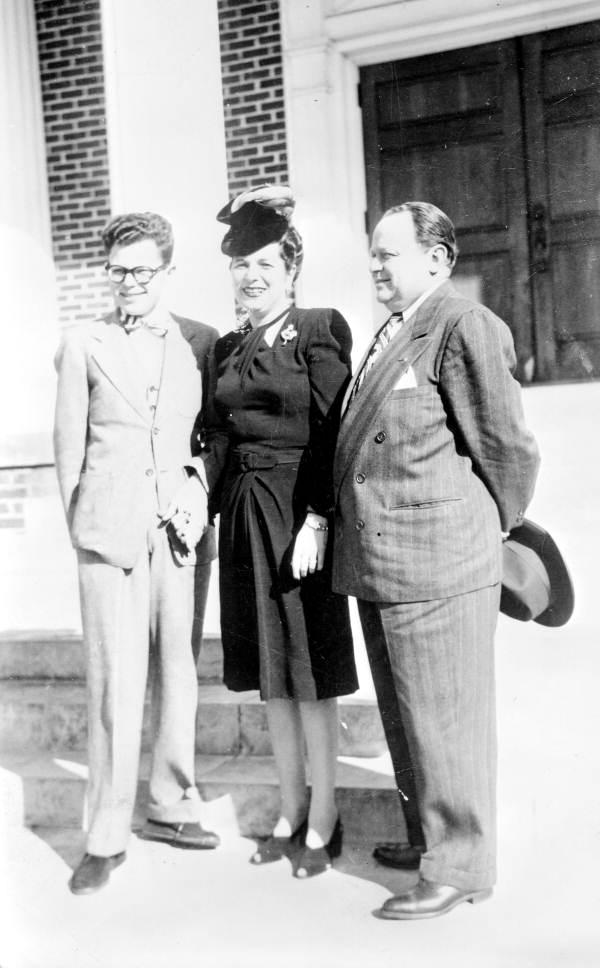
Meyer Nathan Kronenberg
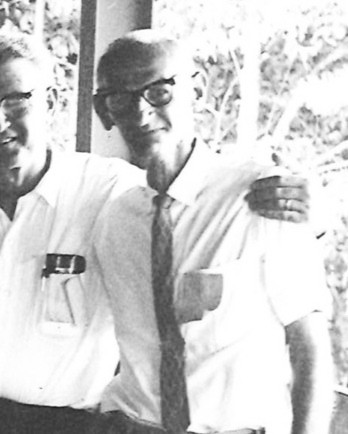
A Visionary Who Built a Jewish Legacy in the South
When Meyer Nathan Kronenberg was born on February 22, 1899, in Linn Crossing, Alabama, his parents, Israel and Annie Kronenberg, could not have foreseen how profoundly their son would shape Jewish life in the American South.
Kronenberg’s life reflected deep commitment—to his faith, his community, and his country. In 1918, he registered for military service during World War I. By the 1940s, he was living in Birmingham, Alabama, working as a partner in a wine company, and remaining deeply involved in the civic and Jewish life of his hometown.
In mid-20th century America, Jewish communal life was shaped not only by the challenges of assimilation and distance, but also by fierce external pressures. By the 1940s, in the wake of rising antisemitism in parts of the South and memories of the horrors of the Holocaust in Europe, Jewish institutions faced the dual burden of serving their communities and defending their place in society. In that climate, Meyer Kronenberg stepped into public leadership. He served as chairperson of the “Southern Section” of the Jewish Welfare Board (JWB)—a vital organization dedicated to welfare, morale, and Jewish continuity, especially during wartime and its aftermath. Read here to learn more about the Southern Section of the JWB.
By the late 1950s, Meyer was a respected leader in the Southeast Council of the Union of American Hebrew Congregations (UAHC), deeply devoted to the idea that Southern Jewish children deserved a place of their own—a place where they could celebrate their faith freely and joyfully.
The effort to build a Reform Jewish camp in North Georgia also came at a time when it was not always safe to be visibly Jewish in the South. In the late 1950s and early 1960s, antisemitism was still an everyday reality. The Ku Klux Klan was active, and Jewish families often faced exclusion from neighborhoods, country clubs, and other civic life. In that context, establishing a Jewish camp in Cleveland, Georgia—a rural and insular community at the time—was not just visionary. It was an act of courage for all our founders.
In 1959, The Southern Israelite reported on the moment when Kronenberg, alongside leaders like C. Davis Turner and Melvin T. Goldberger, stood together in the foothills of the Blue Ridge Mountains, examining the land that would become Camp Coleman. It was a bold beginning—an investment in a Southern, Jewish, future. Click Here to read the article.
When ground was broken in January 1962, that vision became real. The new camp would be a sanctuary where Jewish youth could embrace their identity, connect to nature, and strengthen their connection to one another and to Judaism.
Meyer never had children of his own—but his legacy could not be larger. Every camper who has called Camp Coleman “home” carries it forward.
In honoring Meyer, and all our founders on this Founders’ Day, we remember that they understood deeply what it meant to build Jewish life where it was fragile—and that they accepted risk, invested hope, and trusted that future children and families would carry the torch forward. It is therefore incumbent upon us, the current keepers of the Camp Coleman flame, to financially support Camp Coleman to ensure that this magical place sustains for future generations.
Harry Goldberger
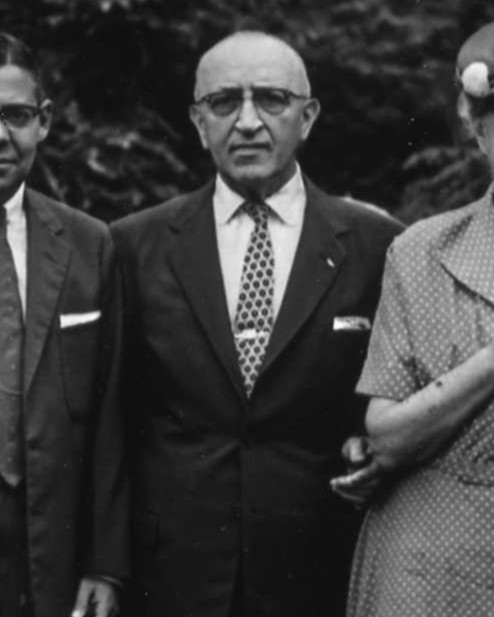
This week, we honor Harry Goldberger of Knoxville, Tennessee — a respected businessman, civic leader, and devoted member of the Jewish community whose values of service and commitment helped shape both his hometown and Camp Coleman’s future.
Harry was known throughout Knoxville as a man of principle and community spirit. A successful businessman, he owned and operated Goldberger Plumbing and Heating Supply Company, a thriving enterprise that served the city for many years. Harry’s true legacy however, went far beyond his business. He was deeply involved in civic life, serving on community boards and working tirelessly to strengthen both Knoxville’s Jewish institutions and its broader community.
A longtime and beloved member of Temple Beth El of Knoxville, Harry was deeply devoted to Reform Jewish life. As one of the congregation’s oldest-standing members, he had the honor of being one of three founders chosen to “turn the first shovel of dirt” at the groundbreaking of Temple Beth El’s new building on July 15, 1956 — a moment that symbolized both his faith in the future and his lifelong commitment to building Jewish community.
As one of the earliest advocates for what would become Camp Coleman, Harry believed in creating a space where Jewish youth could come together, grow in their identity, and find joy in community and tradition. His generosity and encouragement helped pave the way for the founding of the camp, which opened in the early 1960s and continues to thrive more than six decades later.
Harry’s dedication to Jewish life was also a family affair. He was married to Grace (Reich) Goldberger, the sister of fellow Camp Coleman founder Dewey Reich. Making the Goldberger and Reich families two branches of the same founding legacy.
The Goldberger family’s impact on Camp Coleman also extended to the next generation. Harry and Grace’s son, Melvin T. Goldberger served as chair of the Founders Committee, leading the camp’s groundbreaking in 1962, and guiding the vision that became a lasting legacy for thousands of Jewish children.
When Harry Goldberger passed away in May 1967, Knoxville lost a respected leader, and Camp Coleman lost one of its guiding lights. Yet his impact continues — in the laughter of campers, the friendships formed by the lake, and the sense of belonging that defines Coleman to this day.
On this Founders’ Day — Celebrate the Lake, we remember and honor Harry Goldberger, whose faith, family, and leadership helped make Camp Coleman possible.
